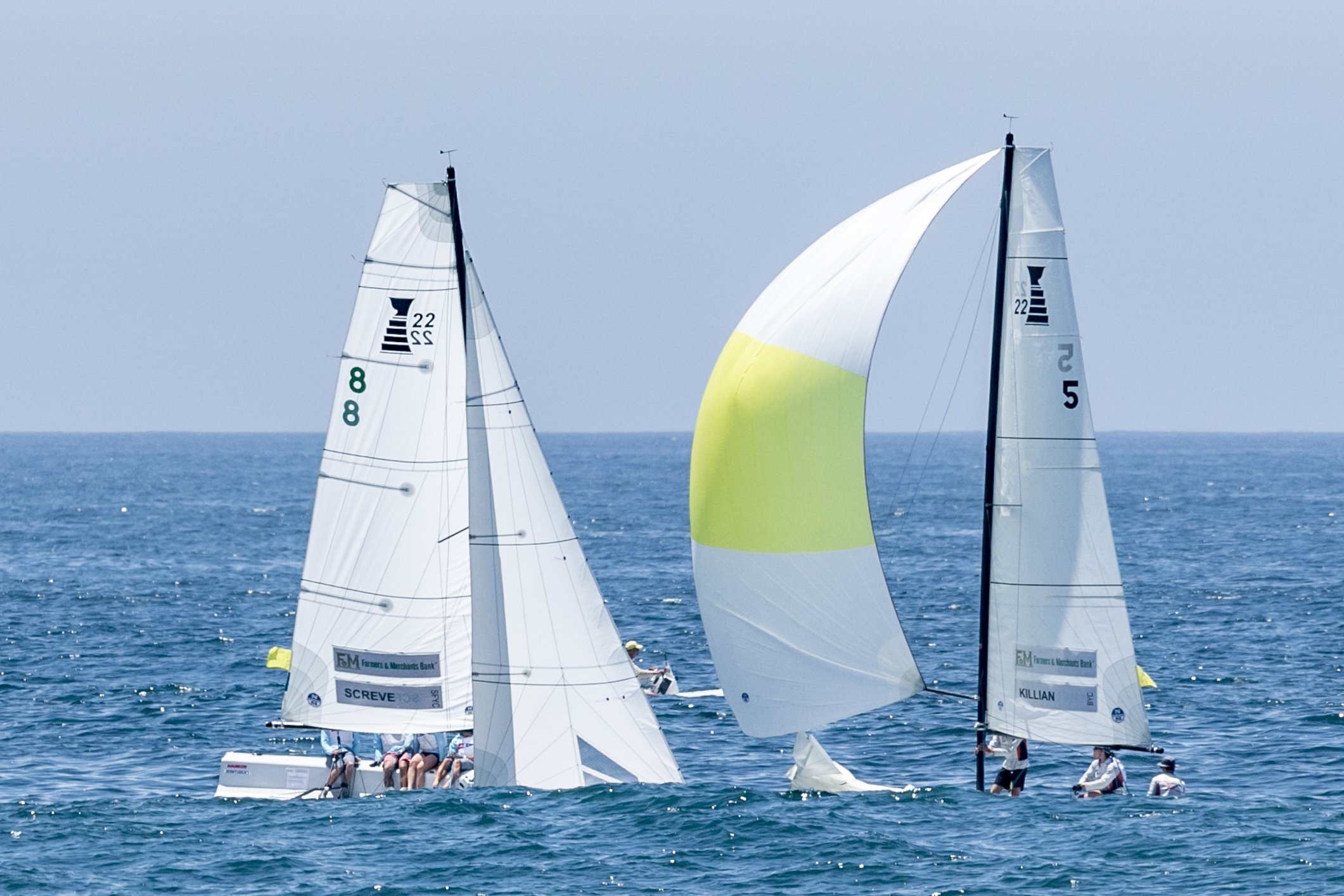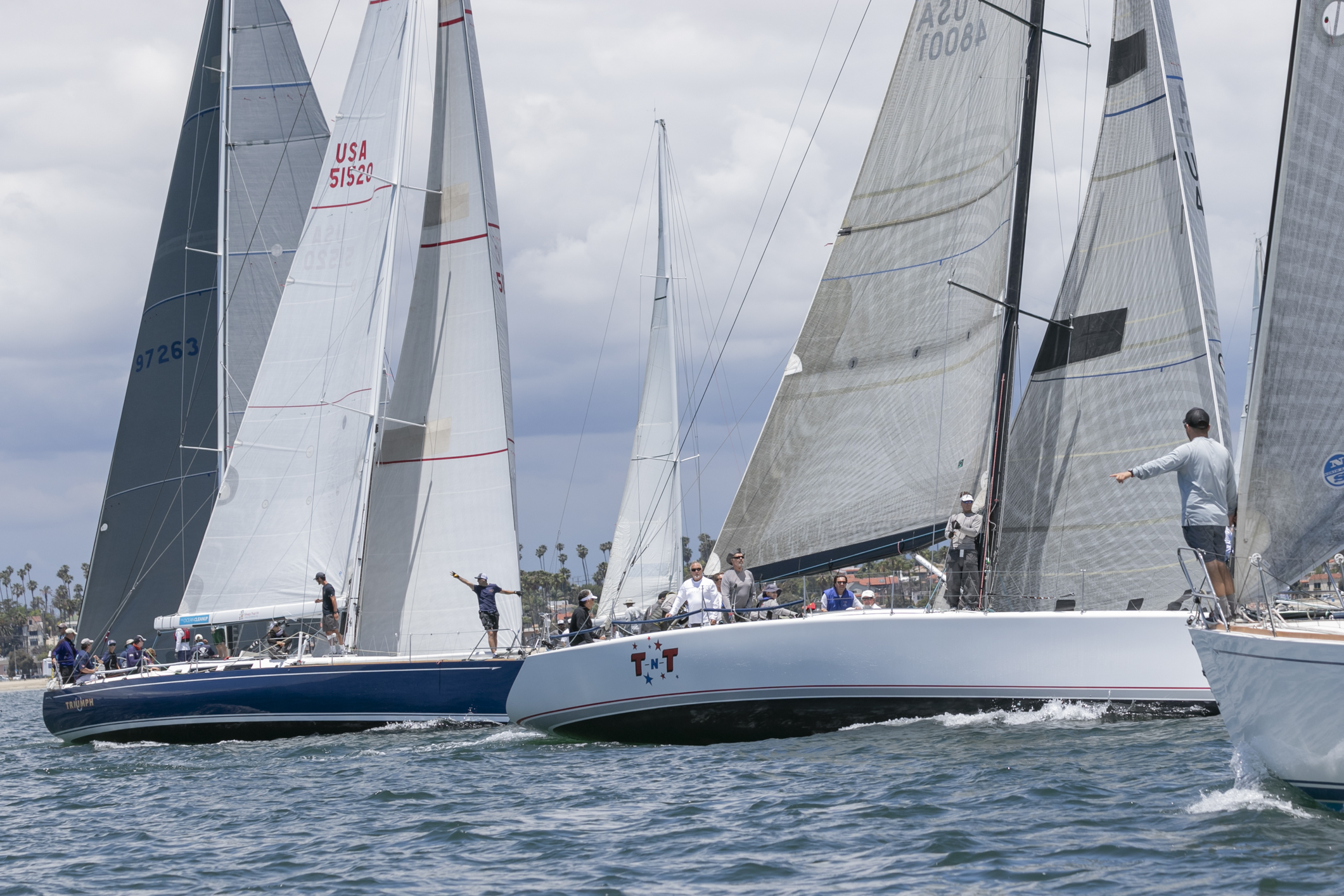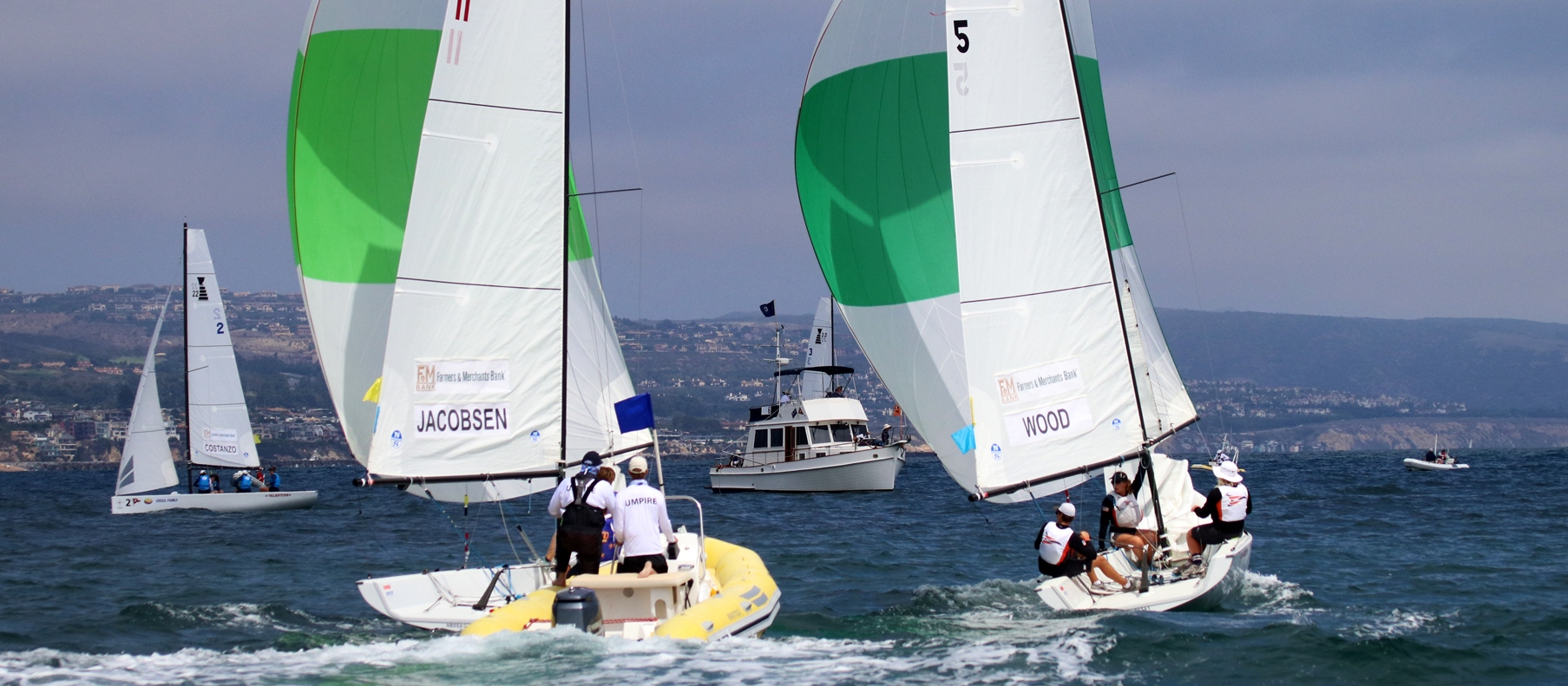Ahoy!
Last weekend, I was cruising offshore in the Pacific Ocean aboard the M/V Rhumb Punch. This is the training yacht for the Maritime Institute, and the boat is docked at the San Diego Yacht Club, so only a short cruise to open waters.
Boating activity appeared to be in full summertime swing, and I was pleased to see the large number of recreational boats on the ocean, from skiffs to mega-yachts. A good number of the boaters were fishing, and I even spotted a few people fishing from a kayak miles out from the coast. That reminded me of the reports by kayakers being towed far out to sea after hooking up a large fish.
Well, we dropped a few hooks in the water, too, and on one cast, an octopus was caught that almost became tako sushi before everyone decided to release it back into the water. However when we were cruising, we encountered two huge pods of dolphins that each had to number into the hundreds. The little ones were swimming playfully alongside their parents, and these mammals were jumping, flipping, swimming all around the boat. In one pod, a couple of sea lion pups were joining in with the dolphins. (And remember, dolphins are warm-blooded, air-breathing mammals that swim in pods, not schools.)
Besides the sea life,I really noticed the increase in the sheer number of US Customs, Fish and Game, and other law enforcement vessels that I saw on the high seas. Supposedly, the enforcement along the US/Mexico border has been dramatically enhanced in the ocean to trim down the flow of drug and human smugglers who are coming in pangas and yachts.
As you have probably heard by now, later in the week three men in a stolen Mexican panga were arrested off Newport’s coast. The three people were smuggling drugs into the country and were allegedly spotted throwing the contraband into the water after they knew the jig was up. This is not uncommon along our coast, and everyone needs to keep their eyes open.
I wrote a column in June 2002 about naked Chinese immigrants with their clothes sealed in plastic bags as they swam ashore at Crystal Cove. This looked a little unusual to the people who were on the beach that night, and the beachgoers called the police. I wonder if anyone would have called the authorities if the Chinese immigrants had been dropped off at a public dock in Newport Harbor, and then pretended to be tourists.
In July, a different boat carrying 15 illegal immigrants capsized in the surf at Crystal Cove, and this is common along the coast, where abandoned pangas are found on beaches. Boaters need to be vigilant and call the Harbor Patrol if you notice any unusual activity.
Tip for the week is for boaters to avoid the Rhine Channel while the dredging operations are under way, and to give the tug and tows courtesy when under way in the harbor. When I mention courtesy, I am referring to make it known to the tug operator that you are giving way with your vessel. This can be done by sailors tacking early, power boaters angling your bow away from the barge, and skippers using their radios for passing if in a narrow fairway. Whether you think you have the right of way or not, the tug and tow is going to win in any collision, which I call the tonnage rule.
The barges filled with spoils are not being taken to the usual offshore dumping grounds but to the Port of Long Beach. The sediment in the Rhine Channel contains metals and other chemicals in levels that are not accepted at the offshore site, and the port will use the material as fill in its expansion project. Chris Miller, Newport Beach’s Harbor Resources Manager, explained on my radio show that moving the material by barge to Long Beach saves millions of dollars compared with having to truck the material to an inland disposal site.
Lastly, do not confuse my use of “under way” referring to the dredging project is active versus the nautical meaning of “under way” for a vessel. The nautical definition is a vessel not made fast to shore, at anchor or aground, and boaters can confuse the term “under way” to mean only when the boat is in motion by maybe power, sail, or paddle. Yet if a boat is simply drifting with the winds and currents then this boat is too under way, and to be exact “under way not making way” by the regulations.
And don’t forget: Tune in to the No. 1 boating radio talk show in the nation, Capt. Mike Whitehead’s Boathouse Radio Show, broadcasting coast-to-coast on the CRN Digital Talk Radio syndicated network every Saturday at noon, Pacific Time and replayed on Sunday at 10 am Pacific. Join Chandler Bell and me as we talk about “all things boating.” You can find the station listings, cable TV channels, live streaming on the Internet, and now available are apps to listen to the show for your iPhone, Blackberry, iTouch, Android, Palm, and Windows Mobile at www.BoathouseTV.com or www.BoathouseRadio.com.
Until next week, Safe Voyages!




